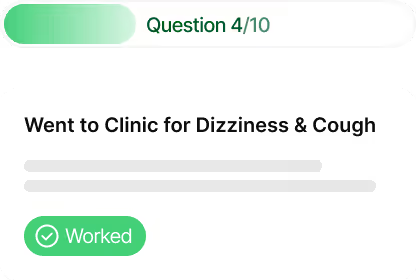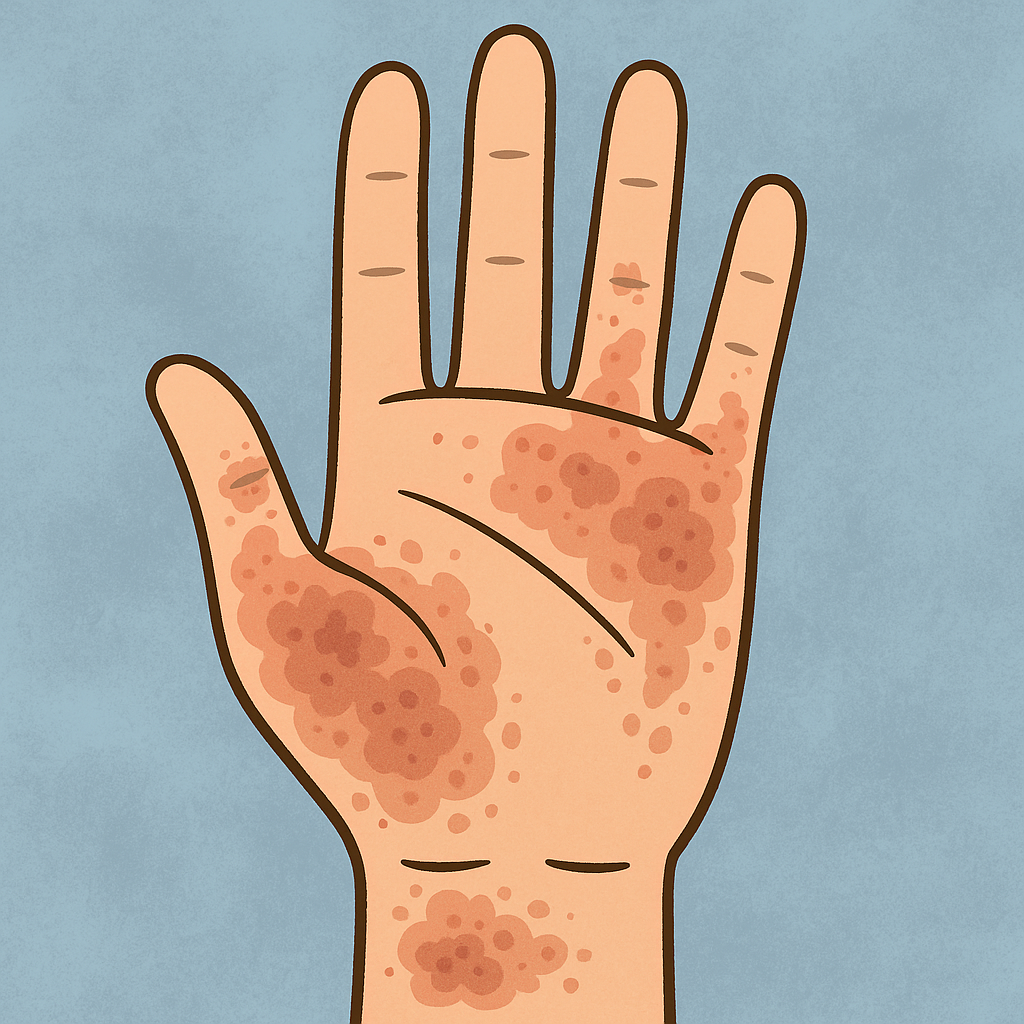Your personal
AI assistant for
Hand Eczema

.avif)
.avif)
.avif)
.avif)



.avif)


.avif)
.avif)
.avif)
.avif)



.avif)


.avif)
.avif)
.avif)
.avif)



.avif)


Our platform gives you a space to track your symptoms, prepare for dermatology visits, and learn from insights shared by others living with hand eczema. Whether you’re identifying triggers, adjusting your skincare routine, or looking for questions to ask your doctor, mama health helps you stay informed and in control of your care.
You’re not alone in this, mama health is built to walk with you through the ups and downs of hand eczema, helping you understand your skin, manage flare-ups with confidence, and advocate for the care you deserve.
What is hand eczema?
Hand eczema is a common form of dermatitis that primarily affects the palms and other areas of the hands. It can present as persistent dry, itchy, and inflamed skin, often appearing red or darkened in contrast to the surrounding tissue. In more severe cases, the skin may crack, become sore, and lead to the formation of blisters, with flare-ups causing swelling in the fingers. In severe and prolonged cases, the condition can lead to significant discomfort, making everyday tasks—such as buttoning clothes, writing, or using digital devices—challenging and painful.
As the body’s first line of defense, the skin plays a crucial role in protecting against infections. It serves as a physical barrier while also housing specialized immune cells that combat bacteria, viruses, and other foreign substances. In individuals with hand eczema, an overactive immune response triggers inflammation and intense itching, exacerbating the condition. Managing hand eczema requires a combination of protective measures, proper skincare, and, in some cases, medical treatment to reduce flare-ups and improve quality of life.


Hand eczema is a non-contagious skin condition that, while manageable, can have a significant impact on daily life. It’s important to note that hand eczema cannot be transmitted from person to person. However, its symptoms—ranging from dryness and irritation to painful cracks—can deeply affect self-confidence and even job performance. While eczema in general is characterized by itching and redness, hand eczema has distinct features that set it apart.
Key symptoms include:
- Skin that's cracked, peeling, scaly, or crusted
- Redness in affected areas
- Intense itching
- Pain in the affected skin area
- Extreme dryness, often leading to peeling and flaking
In severe cases, hand eczema can cause significant damage to the skin on fingers, resulting in deep cracks and extensive peeling.
How can mama health help?




Developed and supervised by medical experts
What patients are saying
There are so many testimonies and so many people like me.
I hope this platform grows so we can help so many people who feel alone with a disease.
In the end we are many and all together we can fight.❤️"
There are so many testimonies and so many people like me.
I hope this platform grows so we can help so many people who feel alone with a disease.
In the end we are many and all together we can fight.❤️"
Frequently asked questions
The healthcare system is missing a crucial piece—real patient experiences. We bring those voices back into the system, making healthcare truly patient-centric. By connecting data from patients, doctors, hospitals, and research, we help unlock new insights, improve treatments, and turn today’s incurable diseases into tomorrow’s breakthroughs.
- See what works – Learn from others with the same condition and avoid trial-and-error treatments.
- Get a clear health picture – Track your journey, compare with others, and gain deeper understanding.
- Be part of something bigger – Your experience helps improve healthcare and accelerate research.
We use the information shared on mama health to improve treatments and services for all patients. However, we ensure that no one—neither other patients, scientists, nor healthcare companies—can identify you personally.
To request the deletion of your data, simply send an email to support@mamahealth.com.

.avif)

.avif)






.jpeg)












